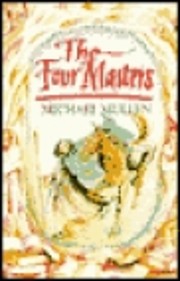

Pulse en una miniatura para ir a Google Books.
|
Cargando... The Four Masterspor Michael Mullen
Ninguno Actualmente no hay Conversaciones sobre este libro. sin reseñas | añadir una reseña
In an Irish monastic settlement in 1632 the son and daughter of a Donegal sea captain befriend four scholars struggling against all odds to write a history of Ireland. No se han encontrado descripciones de biblioteca. |
Debates activosNinguno
 Google Books — Cargando... Google Books — Cargando...GénerosSistema Decimal Melvil (DDC)823.914Literature English & Old English literatures English fiction Modern Period 1901-1999 1945-1999Clasificación de la Biblioteca del CongresoValoraciónPromedio: (3) (3)
¿Eres tú?Conviértete en un Autor de LibraryThing. |
||||||||||||||||||||||||||||||||||||||||||||||||||||||||||||||||||||||||||||||||||||||||||||||||||||||||||||||||||||||||
Although I have heard of The Annals of the Four Masters before - they are a key source for medieval Irish history - this short historical novel for children is the first time I have seen them mentioned in anything other than an academic work. I love the idea of writing a story about the creation of this important text - indeed, about the creation of any manuscript, and about the role of textual transmission in the creation of history - and find the time period in which The Four Masters is set to be a fascinating, albeit tragic one. That said, although I did enjoy the story, I had a few issues with Mullen's work, that prevented me from taking it completely to heart, as I might otherwise have done. First, I sometimes found the tone a little bit too... bombastic is a little harsh, but heroically nationalistic, perhaps? I had no trouble with the realistic depiction of the oppression brought to bear on the indigenous Irish people and culture, by English and Scots colonizers - in fact, save for one memorable scene in Derry, I found this a fairly tame account of the horrors of the times - but did grow a little tired of being reminded how important the creation of the annals was, and how glorious the history it documented. "You do not know how glorious and sad our history is," the children's mother tells them toward the beginning of the book, and one feels as if this point is being continually reemphasized. My second issue was with the naming of the villain of the piece, which has caused me no little confusion, and might in fact mislead young readers. Much like the Four Masters, who were historical figures, there was, in fact, a Staker Wallace (sometimes Wallis) in Irish history. He was born in the 1730s, was a notable Irish rebel, and was murdered by a pro-English aristocrat. Apparently there is a folk-song about him, although I have not as of yet) heard it. Given that all of this is true, I find it mystifying that Mullen chose the name he did for his villainous English officer. Staker Wallace, after all, is hardly a common name... However that may be, despite these qualms, overall I recommend The Four Masters, which presents a fairly engaging read, about an important, and often under-represented event (and book) in Irish history. (